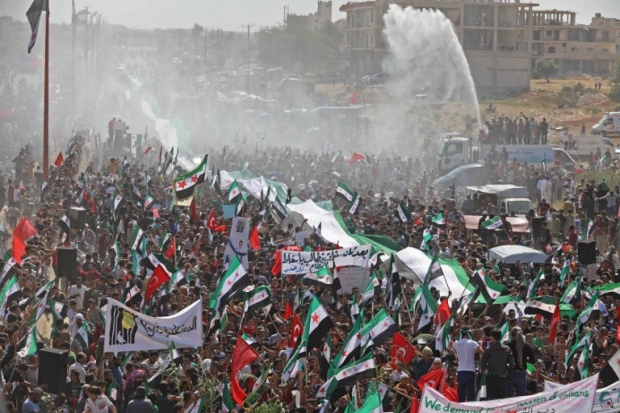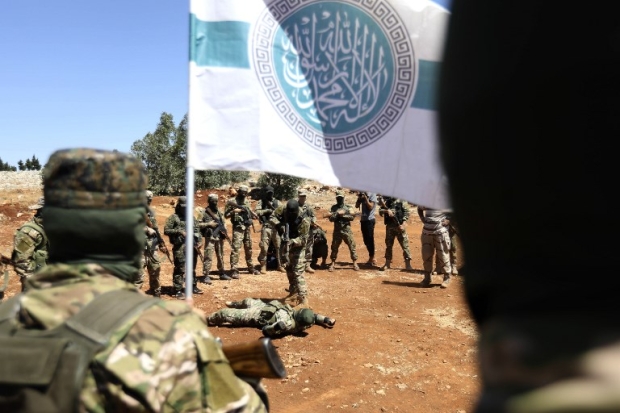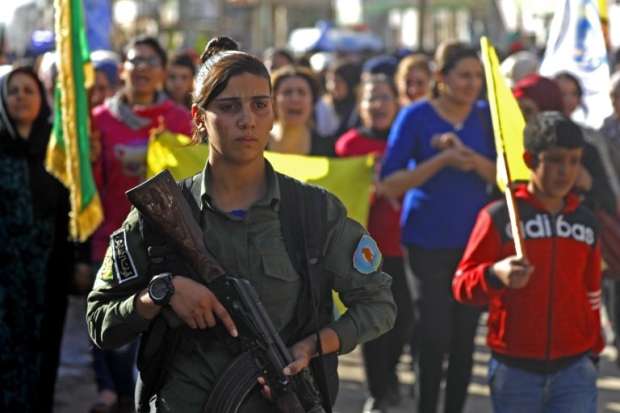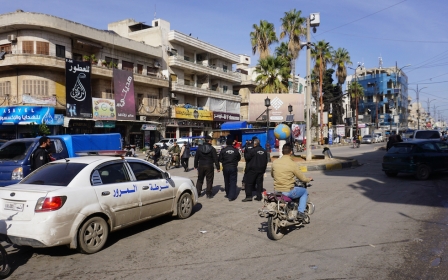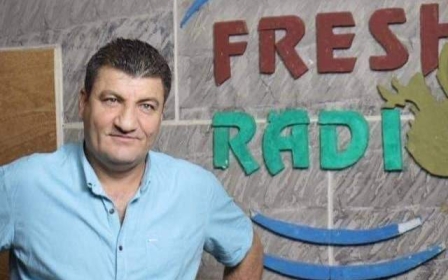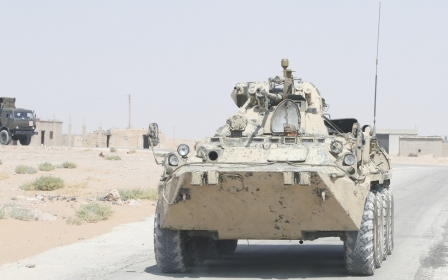As US turns on Astana, Turkey looks east of the Euphrates
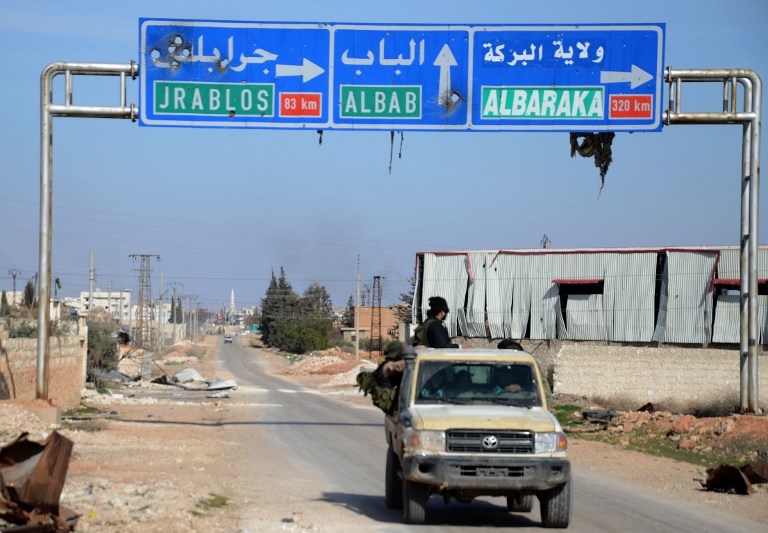
ISTANBUL, Turkey - The Turkish government is holding separate talks on Syria with both the US and Russian governments amid concerns that it is losing diplomatic leverage as the security situation deteriorates in the opposition-held province of Idlib.
The talks come with Ankara repeatedly threatening to launch a military offensive against US-backed Kurdish fighters in northeastern Syria, and with pro-Syrian government forces continuing to deploy around Idlib, where Hayat Tahrir al-Sham (HTS), the former al-Qaeda affiliate in Syria, is trying to consolidate itself.
The first talks took place on Friday during US Special Envoy for Syria James Jeffrey's visit to the Turkish capital for a joint working group meeting.
Pull the plug on the Astana process
- James Jeffrey, US Envoy to Syria
On Tuesday, Jeffrey suggested it was time to "pull the plug on the Astana process," the three-way negotiations between Turkey, Russia and Iran, the latter two of whom are allied with Syrian President Bashar al-Assad.
The comments have created another point of disagreement between the two Nato allies, with Turkish Foreign Minister Mevlut Cavusoglu commenting on Wednesday that Jeffrey's remarks were "unfortunate".
Turkey, which has backed Syrian opposition groups since the start of the country's civil war, argues that the Astana process, which began in January 2017, led to the ceasefire deal in September that prevented an all-out Syrian government assault on Idlib, and averted a humanitarian crisis.
The Idlib deal, agreed after 10 days of talks in September between Turkish President Recep Tayyip Erdogan and Russian counterpart Vladimir Putin, created a 15-to-20km-long demilitarised buffer zone around the province.
According to the deal, "radical-minded" groups, including HTS, would withdraw from the zone and heavy weapons held by Syrian rebels in Idlib would be handed over by 20 October. Russian and Turkish forces would patrol the buffer zone, the agreement stated.
But since the 20 October deadline passed, the Russians have been complaining that militant groups are still in the demilitarised zone.
"Despite the active and consistent steps of our Turkish colleagues, not all extremists have still met the demand to leave the 20km demilitarised zone," Russian Foreign Minister Sergei Lavrov said in a televised interview on 2 December, Tass news agency reported.
Ankara, however, suggests that the Syrian government is trying to provoke an escalation in Idlib.
Last week, more than 5,000 people had to flee their homes in the southeast of the province, according to Turkey's state-run Anadolu news agency.
Free Syrian Army spokesperson Naci Mustafa told Anadolu that around 10,000 Syrian government and Iran-backed fighters had been deployed to the Syrian cities of Hama and Aleppo, ready to confront opposition forces in Idlib.
To the banks of the Euphrates
However, for Turkey, there is another issue to worry about: HTS's moves to strengthen itself in Idlib.
HTS this week accelerated its fight with the Turkish-backed National Liberation Front to seize control over some areas.
"HTS is trying to strengthen its hand for negotiations with Turkey, which wants to redesign Idlib. Turkey aims to bring certain stability, to eliminate terror elements as much as possible, and at the end, create a viable government there which will have international legitimacy," Oytun Orhan, Syrian section coordinator of the Ankara-based Middle Eastern Studies Centre, told Middle East Eye.
He stressed that HTS, while trying to gain strength in Idlib, is refraining from attacking government-held areas.
"On the one hand, it is good for Turkey that HTS is not attacking regime areas, because Ankara desperately wants the continuation of the Sochi agreement. But HTS's efforts to become the main actor in Idlib are against the Turkish desire to redesign Idlib," Orhan said.
Turkey was hoping to postpone the Idlib question for a while and gain time by implementing the Sochi deal to concentrate on the situation east of the River Euphrates, where US-allied Kurdish forces remain in control.
"We will very soon eliminate terrorist elements to the east of the Euphrates, just like we did to the west of the Euphrates," Erdogan said on Monday during a visit to Latin America.
Turkish concerns over US-backed YPG
The elements that Erdogan was referring to are the Kurdish People's Protection Units (YPG), which has been a key ally of the United States in the fight against the Islamic State (IS) group in Syria.
Turkey, however, considers the YPG as an extension of the Kurdistan Workers' Party (PKK), which has waged a deadly insurgency in Turkey since 1984 and is designated as a terrorist group by Turkey, the US and the European Union.
Over the past two years, Turkey has intervened to push YPG fighters out of the area west of the Euphrates but had mostly stopped at the river to avoid a showdown with the US.
"The priority of Turkey in Syria is to eliminate the YPG. So, Turkey really wants to concentrate on the YPG issue during the time it gained in Idlib. But an accident in Idlib or a major problem with the Sochi agreement will cause a weakness in Turkey’s position," Orhan stressed.
Ankara believes one reason behind the US setting up these observation posts is to protect the YPG forces in the event of a Turkish military intervention.
A diplomatic source told MEE ahead of the meeting that Jeffrey's statement regarding the Astana process would also be discussed.
Nihat Ali Ozcan, a former major in the Turkish army and now an analyst at the Ankara-based TEPAV think tank, told MEE that Washington's real concern is the success of the Astana process.
"The US administration is saying they are there to fight IS. But if the Astana process turns out successful, then there will be no need for their presence in Syria, and they will not be able to explain their cooperation with the YPG," he said.
"They will not be able to put pressure on Russia for the presence of Iran in Syria."
Russian forum to discuss Syria
Jeffrey, when suggesting putting an end to the Astana process, said it had failed to advance efforts for a Syrian constitutional committee at a meeting last week.
But on 2 December, even before Jeffrey's statement, Erdogan and Putin had already agreed to a new meeting to break the deadlock in Syria when they had talks on the sideline of the G20 Summit.
"They agreed to further steps aimed at honouring the agreement on creating this demilitarised zone, but simultaneously take measures so that the extremists do not try to sabotage this vital agreement, which everyone has welcomed," Lavrov told the Tass agency.
The Russians also suggested a new forum to discuss the Syrian issue.
Kremlin aide Yury Ushakov told reporters on Tuesday that Putin discussed with Erdogan and German Chancellor Angela Merkel a possible new summit on Syria between Russia, Turkey, Germany and France.
Such a forum was convened in Istanbul on 27 October. The US was not invited to that meeting either.
New MEE newsletter: Jerusalem Dispatch
Sign up to get the latest insights and analysis on Israel-Palestine, alongside Turkey Unpacked and other MEE newsletters
Middle East Eye delivers independent and unrivalled coverage and analysis of the Middle East, North Africa and beyond. To learn more about republishing this content and the associated fees, please fill out this form. More about MEE can be found here.


